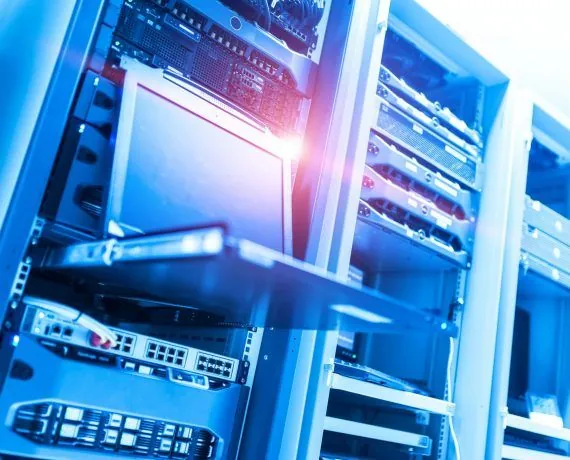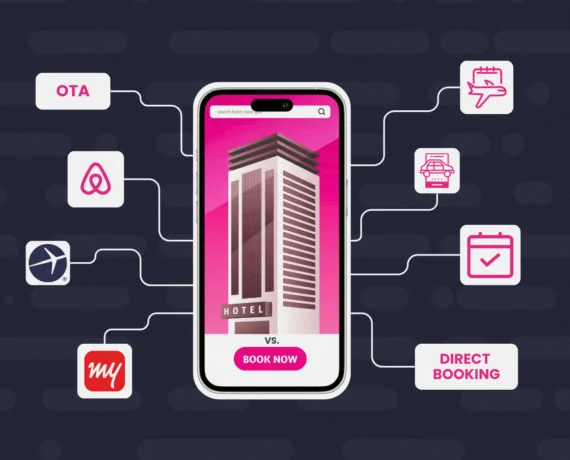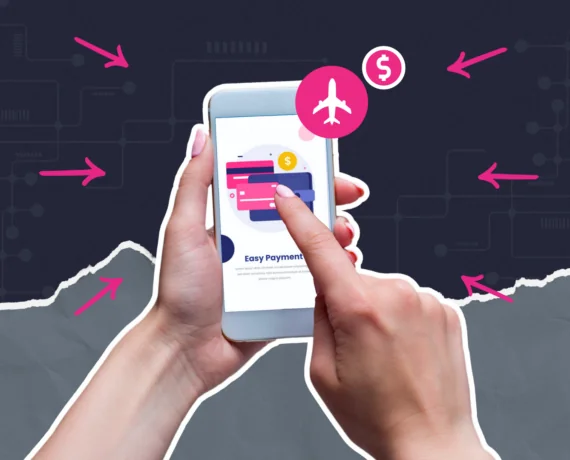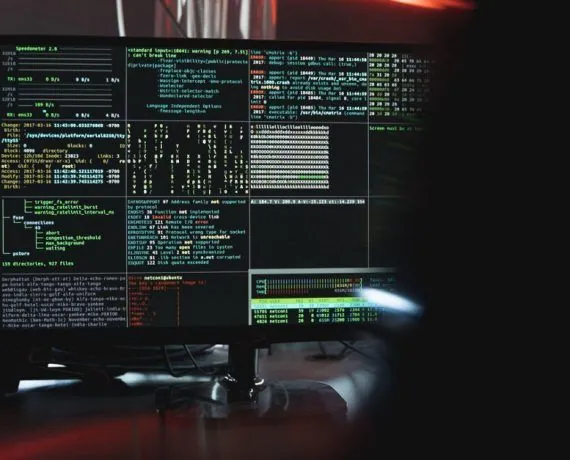Table of Content
- When and How to Optimize PMS
- Signs Your PMS Needs Optimization
- Rebuilding VS Improving PMS
- Steps to Optimize or Expand Your PMS
- Features and Functions of PMS
- Types of PMS
- Security and Data Protection
- Implementation and Setup
- Scalability and Flexibility
- Do’s and Don’ts for PMS Optimization
- Why the Right Team is Crucial
Let’s partner to get you an ideal Property Management System
Book a callWhen and How to Optimize PMS?
You build and test the MVP version of your Property Management System (PMS) to handle bookings, payments, and property details effectively. The reservation system plays a critical role in managing both online and offline bookings. Initially, it serves its purpose well. However, as your business grows, cracks start to show. Operational inefficiencies slow your system down. Frustrations from tenants and property owners rise. Business performance can be assessed through analytics and reports, helping you monitor processes and make informed decisions. Meanwhile, competitors with advanced PMS solutions gain an edge. You may begin to wonder: Is your current system still supporting your growth, or is it holding you back? Many hospitality businesses are investing in custom property management systems to overcome operational challenges. If this sounds familiar, it’s time to assess whether optimization or a complete overhaul is the right path forward.
Signs Your PMS Needs Optimization
Delving into the numbers reveals a harsh truth: an outdated PMS costs your business a significant chunk of its potential revenue. Poor user experience and frequent glitches lead to client churn, while manual interventions drain employee productivity.
The potential for growth through optimization is enormous. With the right adjustments, your PMS and revenue management system boost operational efficiency, increase revenue, and enhance your reputation. Hotel managers can benefit from intuitive dashboards that provide critical insights and support efficient hotel processes. If you’re wondering whether your system is holding your business back, here are some key red flags to watch for:
- System SlowdownsThe system lags as the user base grows.
- High Manual WorkloadTeams spend time on administrative tasks that should be automated.
- Poor User ExperienceTenants and property owners feel frustrated.
- Lost Revenue OpportunitiesCompetitors gain an edge with more advanced solutions.
Partner with us to develop your custom property management system
How to Approach Those Signs: Rebuild or Improve?
Improving the Current System
Why Choose This Option?
- Budget Constraints: You want to minimize expenses and prefer a lower upfront investment.
- Time Sensitivity: You need to implement updates quickly without waiting for a long development process.
- Current System Usability: The existing system works adequately, and you only need minor enhancements to meet your goals.
Pros:
- Cost-Effective: Lower upfront investment compared to rebuilding. A hotel PMS can be a cost-effective solution for streamlining operations.
- Time-Saving: Faster implementation since the foundation is already in place.
- Familiarity: Users are already accustomed to the system’s interface and workflows.
Cons:
- Limited Scalability: The existing architecture may struggle to handle future growth.
- Persistent Inefficiencies: Core issues from the initial design could remain unresolved.
- Higher Maintenance Costs: Fixing and patching the system over time may become expensive and complex.
- User Experience: A user-friendly interface is crucial for improving user experience and operational efficiency.
Rebuilding from Scratch
Why Choose This Option?
- Long-Term Vision: You’re focused on building a system that supports scalability and future growth.
- Modern Demands: The current system no longer meets your operational or performance needs.
- Advanced Features: You want to incorporate modern functionalities, improve compliance, or stay ahead of competitors.
Pros:
- Scalability: A fresh architecture ensures the system can grow with the business.
- Optimized Performance: Designed to handle modern demands, reducing technical bottlenecks.
- Enhanced Features: Opportunity to incorporate advanced functionalities and compliance standards.
- Future-Proof: Built with adaptability in mind to support innovation and changing market needs.
- Mobile Apps Integration: Allows managing operations effectively while on the go.
Cons:
- Higher Initial Costs: Requires a significant upfront investment of time and resources.
- Longer Development Time: Building from the ground up takes more time than improving an existing system.
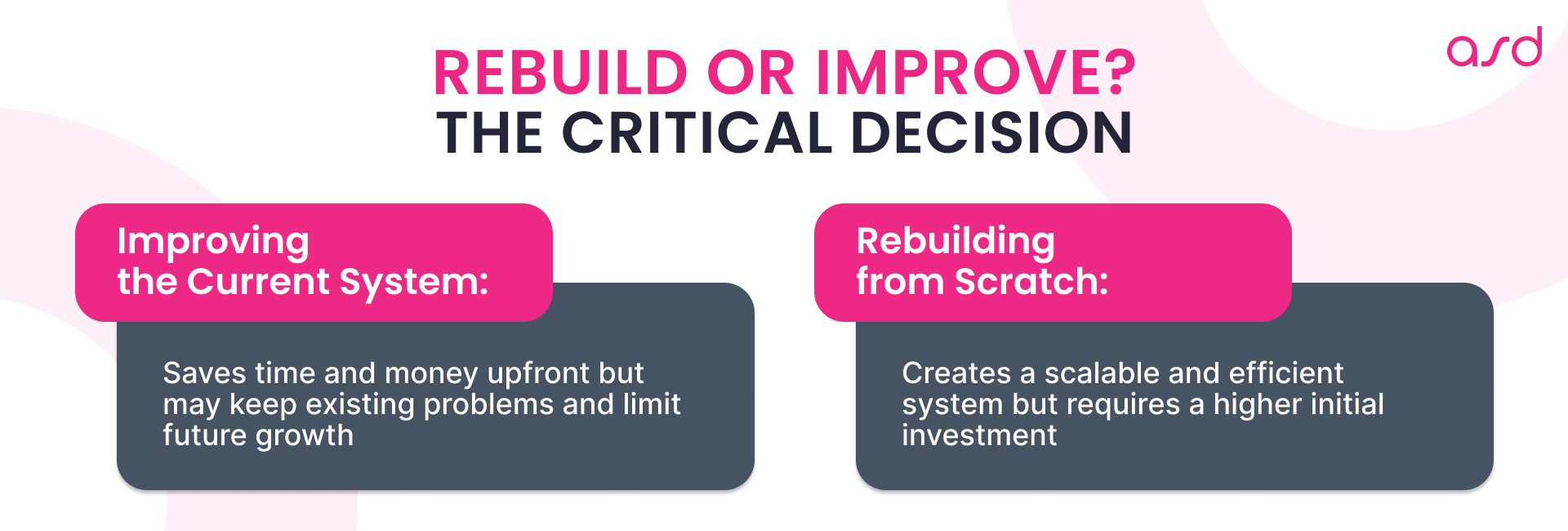
Ultimately, rebuilding the system provided a stronger foundation for sustainable growth, making it the more strategic choice for long-term success. An important part of developing PMS software process is finding the right team.
ASD Team knows how to choose the right type for your business
Steps to Optimize or Expand Your PMS
- Analyze Current Performance: Identify inefficiencies, bottlenecks, and missed opportunities through user feedback and analytics. Include an assessment of how well the PMS manages hotel rooms to ensure they are maintained properly and priced effectively.
- Prioritize Key Features: Focus on automation, integration, and analytics to improve scalability and user satisfaction. Effective managing reservations is crucial for smooth operations, avoiding overbooking, and enhancing revenue generation.
- Choose the Right Partner: Collaborate with a team experienced in travel tech and property management systems to ensure industry-specific solutions.
- Plan for Growth: Build a scalable architecture that can handle future demands without compromising performance.
Essential Features and Functions of Property Management Software
To create a more efficient system, several essential features are identified:
- Centralized Control
A unified dashboard manages bookings, payments, maintenance requests, and the entire PMS system.
- Automation
Features like rent reminders, vacancy alerts, invoice generation, and managing room availability and same room assignments reduce manual workload.
- Analytics
Detailed insights into occupancy rates, revenue, guest payments, and comprehensive data collection drive smarter decisions.
The ability to seamlessly connect with OTAs, payment gateways, manage reservations, and integrate with other hotel management systems.
- Compliance
Built-in adherence to regulations like GDPR and PCI-DSS for secure operations, including streamlined reservation processes and effective channel management.
- Hotel Property Management System
A hotel property management system streamlines operations by integrating various functions such as reservations, guest services, and analytics, enhancing overall efficiency.
- Modern PMS Software
Modern PMS software integrates with core systems like booking engines and revenue management systems, providing a cohesive platform for hotel operations.
- Customer Loyalty
Utilizing guest profiles and engagement tools to enhance customer loyalty and improve reservation management.
Main Functions of Property Management System:
| Function | Description |
|---|---|
| Lease Tracking | Tracks lease agreements, expiration dates, and renewals to ensure timely management of rental contracts. |
| Tenant Communication | Facilitates communication between property managers and tenants, streamlining notifications, reminders, and updates. |
| Rent Collection | Automates rent payments, sending reminders and processing transactions, making payment tracking more efficient. |
| Maintenance Request Management | Allows tenants to submit maintenance requests, and property managers can track and resolve issues quickly. |
| Property Marketing & Listings | Integrates with listing platforms and helps market available properties to potential tenants. |
| Financial Management | Manages budgets, accounting, and generates financial reports for tracking income, expenses, and overall profitability. |
| Tenant Screening | Automates the tenant screening process, including background checks and credit evaluations. |
| Hospitality Business | Enhances operations within the hospitality business by integrating various management functions. |
| Hotel Operations | Streamlines hotel operations, from reservations to housekeeping, improving efficiency and guest satisfaction. |
| Hospitality Businesses | Essential for various tasks in hotels, highlighting the increasing investment in technology. |
| Event Management | Organizes events, conferences, and catering, integrated with other hotel management tools. |
| Rental Property | Manages vacation rentals, guest houses, and similar lodging types. |
| Key Functions | Essential components that streamline hotel operations and improve guest communication. |
| Room Statuses | Manages room statuses for efficient housekeeping and guest check-ins. |
| Online Distribution Channels | Enhances inventory management and boosts online visibility. |
| Property Maintenance | Efficiently schedules maintenance tasks and housekeeping services. |
| Revenue Management | Optimizes hotel operations and profitability through dynamic pricing strategies. |
| Hospitality Industry | Undergoing transformation through advanced technological solutions and personalized guest services. |
| Third Party Systems | Integrates with property management systems to enhance functionality. |
| Hotel Management System | Integrates various processes within the hotel industry, enhancing operational efficiency. |
| Guest Communication | Enhances guest satisfaction and streamlines operations through automated messaging and personalized interactions. |
| Direct Bookings | Enhances direct bookings, reducing reliance on OTAs and streamlining payment processing. |
| Property Management Companies | Utilizes dedicated APIs to connect with major hotel systems. |
| Intercontinental Hotels Group | Adopts advanced booking and reservation technologies. |
| Room Status | Tracks room status for efficient management of cleaning tasks and guest check-ins. |
| Online Travel Agencies | Manages hotel bookings and distributions, reducing reliance on OTAs. |
| Channel Managers | Connects hotels to various distribution partners, optimizing revenue management. |
| Guest Management | Enhances customer loyalty and optimizes the guest experience. |
| Guest Feedback | Facilitates the collection and management of guest reviews. |
| Multiple Properties | Manages reservations and emphasizes the capability to handle multiple properties. |
| PMS Solution | Streamlines operations through features like reservation management, CRM, and reporting. |
| Hotel Industry | Boosts operational efficiency and customer satisfaction through modern PMS. |
| Hotel Property | Optimizes daily tasks and improves customer satisfaction. |
| Booking Engine | Facilitates direct reservations through hotel websites. |
| Software Developer | Creates both proprietary and custom software for PMS. |
| Hotel Management Software | Streamlines operations, reduces costs, and enhances guest engagement. |
| Guest Service | Enhances guest service through advanced technologies in PMS. |
| Website Booking Engine | Integrates with other core systems for seamless reservation management. |
| Office Operations | Facilitates essential functions within hospitality businesses. |
| Modern Hotels | Adopts advanced PMS that integrates seamlessly with various hotel systems. |
| Channel Manager | Integrates with PMS as a vital tool for managing online distribution and inventory. |
| Central Reservation System | Manages and distributes room availability and rate data across different distribution channels. |
A system with these features and functions would meet current demands and support future growth.
We specialize in proptech software development, building scalable property management systems, booking engines, and AI-powered tools — and continuously developing new features that streamline operations and boost efficiency for real estate businesses.
Types of Property Management Systems
Property management systems come in various forms, tailored to meet the needs of different businesses, like travel & hospitality software development or OTA software development. Residential property management systems focus on managing apartments, single-family homes, or condominiums, while commercial systems cater to office spaces, retail centers, or industrial properties. For vacation rentals, specialized systems help handle short-term bookings and integrations with platforms like Airbnb or Booking.com. By understanding the types of property management systems available, businesses can select or develop a solution that aligns with their unique operational demands.
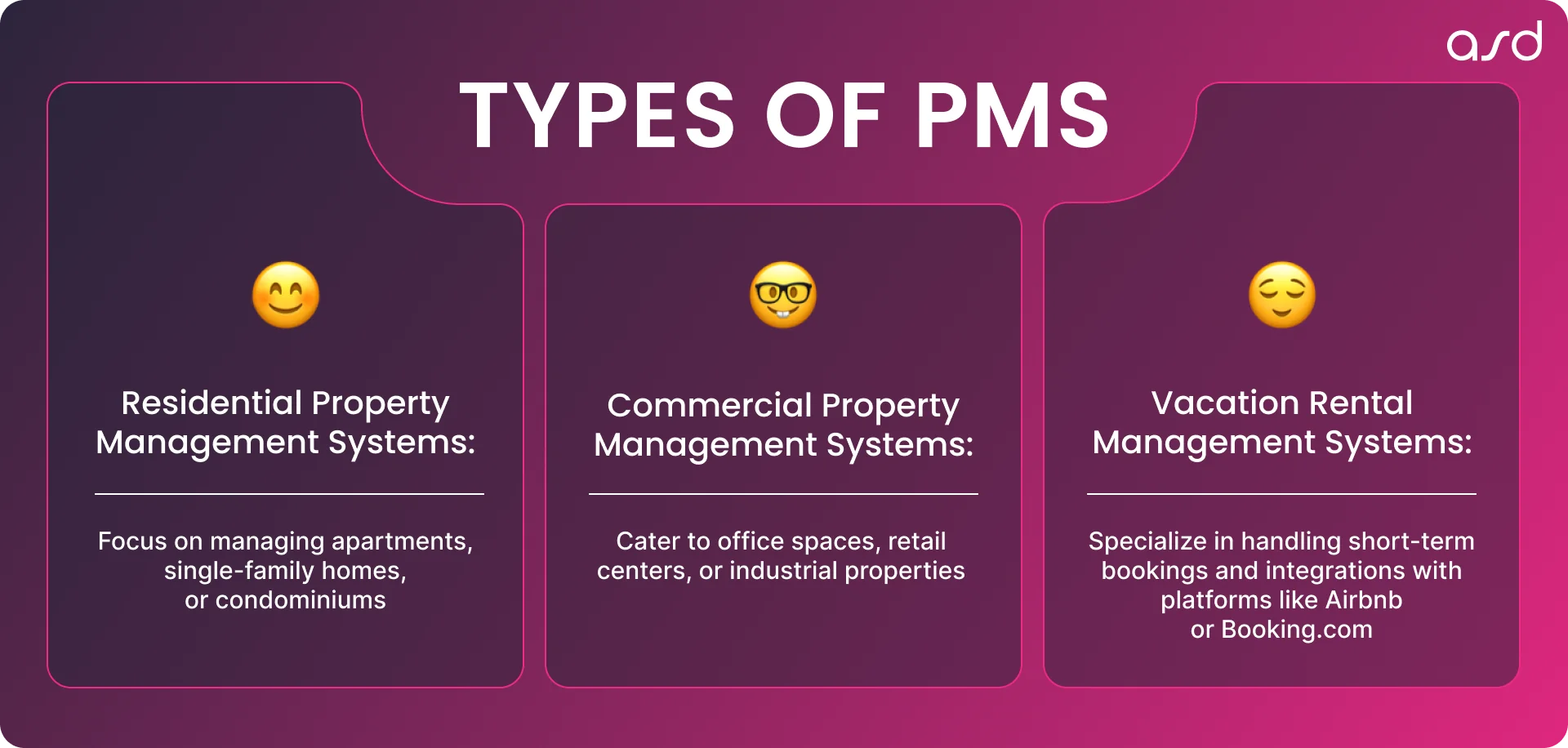
Security and Data Protection
In today’s digital age, a good property management system (PMS) must prioritize robust security and data protection features to safeguard guest data and prevent unauthorized access. Compliance with industry standards such as GDPR and PCI-DSS is non-negotiable for any reputable PMS software. These standards ensure that guest data is handled with the utmost care and security.
Encryption and secure payment processing are critical components of a secure PMS. These features protect sensitive information during transactions, ensuring that guest data remains confidential and secure. Regular software updates and patches are essential to prevent vulnerabilities and keep the system secure against emerging threats.
A comprehensive PMS should include access controls, audit logs, and monitoring capabilities to detect and respond to security incidents promptly. Cloud-based PMS solutions offer additional security benefits, such as secure data centers and redundant systems, ensuring business continuity even in the face of potential disruptions.
Property managers must prioritize security and data protection when selecting a PMS. A clear data protection policy and staff training on data handling and security best practices are crucial to maintaining a secure environment. By focusing on these aspects, property managers can protect their business and guests, ensuring a trustworthy and reliable property management system.
Implementation and Setup
Implementing a property management system requires careful planning and setup to ensure a smooth transition. A good PMS provider should offer comprehensive training and support to help property managers and staff become familiar with the system. An intuitive user interface and easy-to-use features are essential to minimize the learning curve and ensure quick adoption.
Property managers should start by defining their specific requirements and configuring the PMS to meet these needs. The implementation process should include data migration, system integration, and thorough testing to ensure everything works as expected. This step is crucial to avoid any disruptions in daily operations and to ensure a seamless transition.
Ongoing maintenance and support are vital to ensure the PMS continues to meet the property’s evolving needs. A phased implementation approach can help minimize disruption to daily operations and ensure a successful rollout. This approach allows property managers to address any issues that arise during the initial stages and make necessary adjustments.
Effective change management and clear communication about the benefits of the new PMS to staff are essential for smooth adoption. By prioritizing these aspects, property managers can ensure a successful implementation and setup of their property management system, leading to improved efficiency and productivity.
Scalability and Flexibility
A good property management system should be scalable and flexible to accommodate growing properties and changing business needs. Cloud-based PMS solutions offer greater scalability and flexibility compared to on-premise systems, making them an ideal choice for modern property managers.
PMS software should be capable of handling increased traffic, bookings, and user activity without compromising performance. Property managers should look for a PMS with a modular design and customizable features to adapt to their specific needs. This flexibility allows the system to grow and evolve with the business, ensuring long-term viability.
A scalable PMS should integrate seamlessly with other systems and third-party applications, expanding its functionality and providing a comprehensive management solution. Property managers should prioritize a PMS with a flexible pricing model that can adapt to their changing business needs, ensuring cost-effectiveness and scalability.
A robust API and open architecture are essential for enabling seamless integrations and custom development. Property managers should consider a PMS with a proven track record of supporting growing properties and adapting to changing market conditions. By focusing on scalability and flexibility, property managers can ensure their PMS remains a valuable asset, supporting their business’s growth and success.
Do’s and Don’ts for PMS Optimization
| Do | Don’t |
| Build a scalable foundation | Ignore long-term growth needs |
| Focus on automation and analytics | Prioritize flashy but unnecessary features |
| Invest in a specialized development team | Rely on generalists with no industry focus |
| Integrate compliance and security from the start | Leave compliance as an afterthought |
| Continuously audit and optimize system performance | Assume the system will always remain optimal |
Why the Right Team is Crucial
One critical lesson from the initial development process is the importance of having the right team. The project requires experts who understand the nuances of travel tech and property management.
- Specialized Expertise
Developers with experience in integrating OTAs, managing dynamic pricing, and designing user-friendly interfaces.
- Focused Vision
Unlike generalist freelancers, specialized teams deliver a product tailored to the unique needs of the industry.
Investing in a skilled team ensures smoother development and a superior final product. If you need a Travel API Property Management System, choose a team with deep knowledge and experience in the travel tech industry.
Yes, we are the perfect team We know how to build and optimize a Property Management System. Book a free call with ASD Team experts to be sure.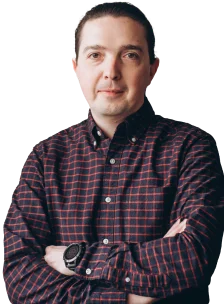

The Final Takeaway
Optimizing a PMS isn’t just about solving today’s problems — it’s about preparing for tomorrow’s opportunities. Whether improving an existing PMS or building a custom property management system, success lies in prioritizing scalability, user experience, and adaptability.
A well-designed PMS can be the backbone of a thriving property management business, ensuring efficiency, client satisfaction, and long-term profitability. The journey may be challenging, but the results are well worth it.
Questions? Answers!
What makes a good property management system (PMS)?
A good PMS streamlines operations with features like lease tracking, automated rent collection, maintenance management, and financial reporting. It should be scalable, secure, and efficiently integrated with other systems.
How do I prioritize features for my property management system?
Prioritize features based on your business needs. Start with essential functions like lease tracking and rent collection, then add maintenance management and financial reporting as you grow. Ensure the system is scalable and user-friendly for future demands.
What are the benefits of a custom-built property management system?
A custom-built PMS is tailored to your specific business needs, offering better scalability, flexibility, and efficiency. It ensures you have a system designed to handle unique challenges and growth, unlike off-the-shelf solutions that may have limitations.
Should I optimize my current property management system or start from scratch?
If your current PMS could be more efficient and scalable, rebuilding may offer better long-term benefits. Optimizing might be quicker and cheaper, but it could limit future growth.
How can I improve the user experience with my property management system?
Improving UX involves making the system intuitive, easy to navigate, and responsive. Regular updates, simplifying workflows, and improving customer support enhance user experience.

